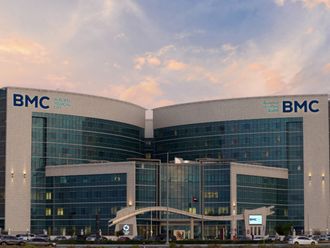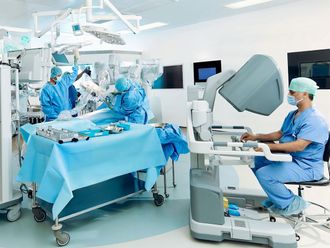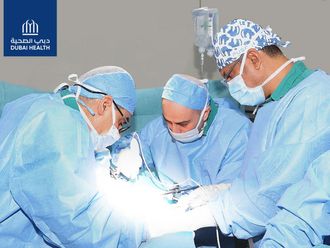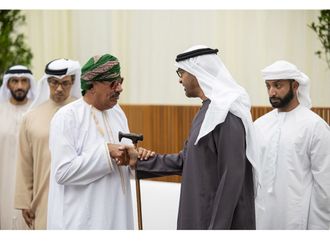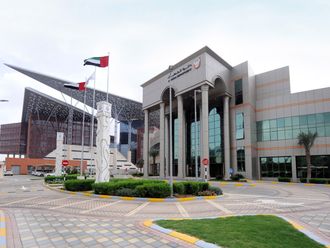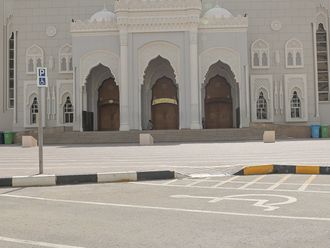Abu Dhabi: A cancer diagnosis can sound like the death knell, but advances in treatment methods and a move towards earlier detection means that these diseases can often be cured.
In fact, a total of 50 new therapies to treat cancer and lessen its symptoms were developed last year alone, up from 35 treatments developed in 2014, Dr Aladdin Maarraoui, consultant and chief of haematology and oncology at Mafraq Hospital in Abu Dhabi, told Gulf News.
“While the incidence of cancer is on the rise globally, cancer-related mortalities are declining at about two to three per cent annually. This is because greater awareness and accurate screening methods now allow us to detect the diseases better. In addition, a lot of medical research is centred on developing therapies and drugs to treat cancer,” he added.
The doctor was speaking on the sidelines of a talk held by Rahma, the Cancer Patient Care Society, ahead of World Cancer Day. Rahma was launched last year following a decree by the Abu Dhabi Executive Council.
According to Dr Maarraoui, newer therapies focus greatly on working against the 300 human genes known to be related to cancer, and especially against genetic mutations that lead to the progression of cancers, known as driver genes. Unlike other traditional treatments like chemotherapy, which kill both cancerous and non-cancerous cells, these new treatment methods, or targeted therapies, only work to kill cancer cells and driver mutations.
“In one of the cases we saw at Mafraq, an 84-year-old woman presented with advanced lung cancer, and chemotherapy had failed to stop the progress of the disease. We analysed her cells, found the driver mutation and provided targeted therapy. Her cancer went into remission for nearly three years,” Dr Maarraoui, who is also clinical professor at Gulf Medical University, said.
Although the patient’s cancer relapsed, the doctors were able to isolate the mutation and are now working to get a newly developed drug to control the spread of the disease.
Another new area of research focuses on enhancing the body’s own defence mechanisms against cancer cells.
“The human body has its own T lymphocytes to fight cancer, but certain cancer genes can block their effect. So, new drugs are being developed to reduce cancer cells’ resistance to the effect of T cells, and two have already been approved in the United States,” Dr Maarraoui said.
“A diagnosis of cancer [therefore] does not have to be the end of the road, especially in the UAE where the newest treatment methods quickly become available,” he added.


